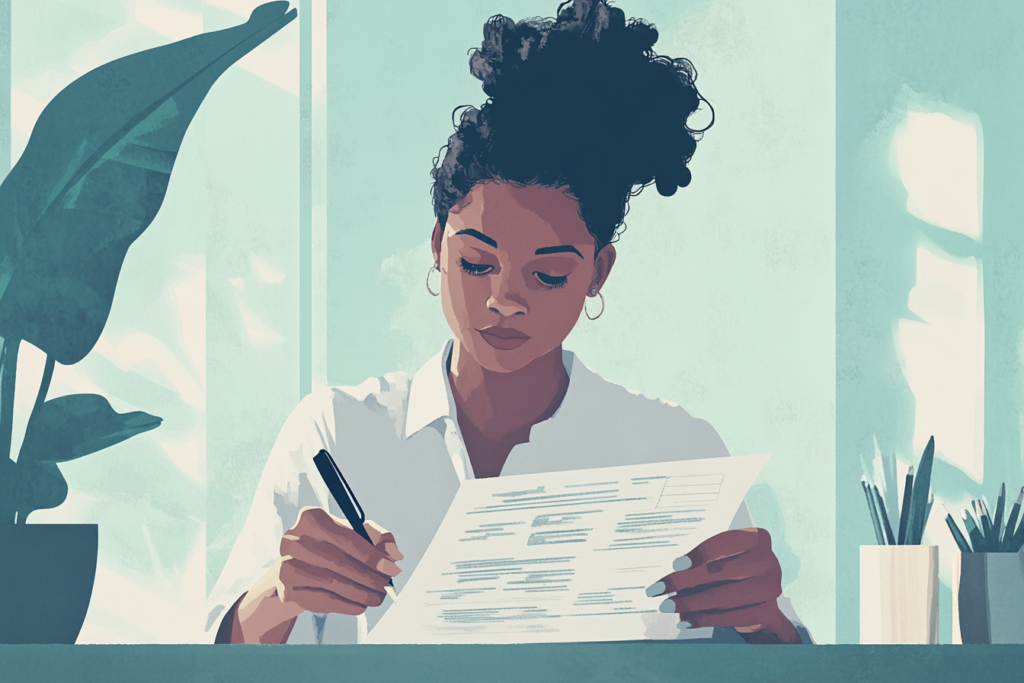You’ll probably need to apply for a loan at some point in your life. You might need it to purchase a car or a property, get through emergency bills, or start a small business. Whatever the reason, you’ll quickly learn that your credit plays a significant role. Your credit score will impact not only your ability to get approved for a loan but also the loan terms you receive.
Credit Scores & Loan Interest Rates
Most importantly, your credit score will impact the sort of interest rate you receive. That’s because a higher credit score indicates a trustworthy, reliable borrower. It tells your lender that you usually make your payments on time and in full.
In contrast, a low credit score tells the lender you may be prone to missing or making late payments. This puts them at risk of not getting their money back. To offset this risk, they increase your interest rate to get more money from you upfront.
Even a tiny difference in your interest rate can mean hundreds or thousands saved. Let’s take a look at a mortgage as an example. As of 2025, the average mortgage balance in the United States was $252,505 in 2024.
Someone with average credit might secure a 6.63% APR on a 30-year fixed loan. This means they have a monthly mortgage payment of $1,617.65.
However, someone with excellent credit may get approved for an interest rate that’s a whole point lower, at 5.63%. That one percent difference in interest means this person’s mortgage payment is $163.29 less a month! Over the life of the loan, the person with the higher interest rate will pay almost $59,000 more in interest.
When dealing with large loans, a decrease in interest can save you a lot of money.
Credit Scores & Loan Terms

Your credit score can play a role in the loan terms you receive, such as:
Higher Penalties & Fees
Someone with poor credit may be subject to high penalties. For example, a single missed or late payment will drastically increase the interest rate. Lenders do this to protect themselves and discourage the individual from being delinquent on their loan. There will also often be a fee applied for late or missed payments.
In comparison, someone with good credit might miss a payment and only be charged a late fee. Because they’re in such good standing with the lender, they may even be able to call in and have the fee reversed if this was their only instance of paying late.
Flexible Payment Options
Someone with excellent credit will often be offered flexible payment options on their loan. This means they may be allowed to:
- Ask for a longer or shorter loan term
- Pay off the loan early without penalties
- Change the frequency of payment (weekly, bi-weekly, monthly)
Credit Scores & Loan Approvals
A strong credit score means you can apply for loans and get fast approval. Lenders review both your credit score and credit report and feel comfortable loaning out money to you.
Fast loan approvals are essential. You could lose out on your dream home because your mortgage application took too long to approve. Or, you never know when you might be in a financial emergency and need cash quickly.
Perhaps even more importantly, a healthy credit score almost always means you’ll be approved for your loan (unless you’re asking for far too much or already have a lot of debt).
Individuals who can’t get approved for loans from a traditional lender (i.e. bank or credit union) might seek alternative lending options, such as payday loans. Alternative lenders know that borrowers are desperate and often take advantage of them. For example, someone might turn to payday loans. These are considered predatory loans because they charge interest rates as high as 400%.
What’s a Good Credit Score for Loan Terms?
The two credit scoring models—FICO and VantageScore—assign consumers a credit score between 300 and 850.
You should shoot for a credit score of 760 to get the best loan terms and interest rates.
How to Improve Your Credit Score
If you’re not holding a 760 credit score right now, there’s no need to panic. Your credit score isn’t permanent; you can start taking steps today to improve it. Here are a few things to do to boost your credit score:
- Pay all your bills on time
- Pay down your debts
- Maintain a credit utilization ratio of under 30%
- Keep your oldest credit account open to lengthen your credit age
- Avoid too many hard inquiries by never applying for more than one new credit account per six months
- Monitor your credit report and dispute any errors
- Diversify your credit mix
It’s Never Too Late to Rebuild
Educating yourself on your credit score’s effect on loan terms can help you be prepared for the next time you need to apply for a loan.
You now have a goal of achieving a credit score of 760 and the recommended steps for getting there.
If you don’t need a loan urgently, it might be worth your time to pause the application. Focus on improving your score for six months so you can secure better loan terms.
You might also be interested in: Joint Bank Accounts: What Are the Legal Implications of Opening Them?







